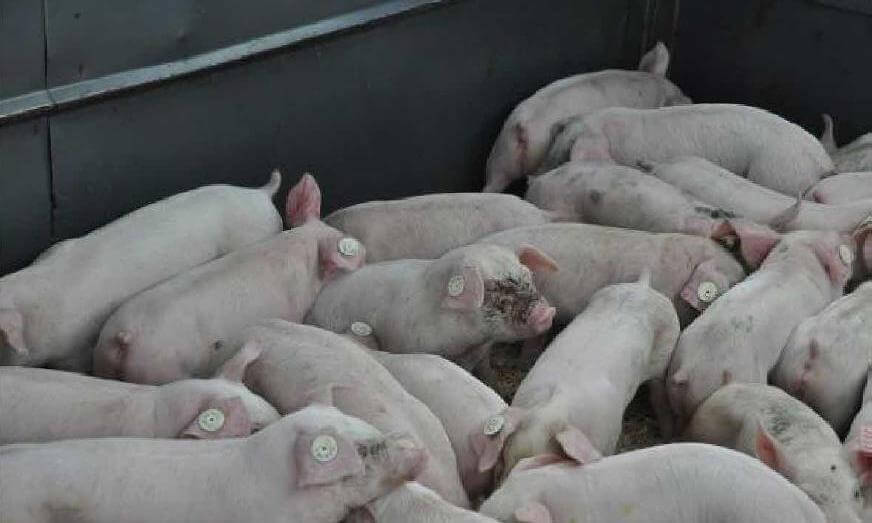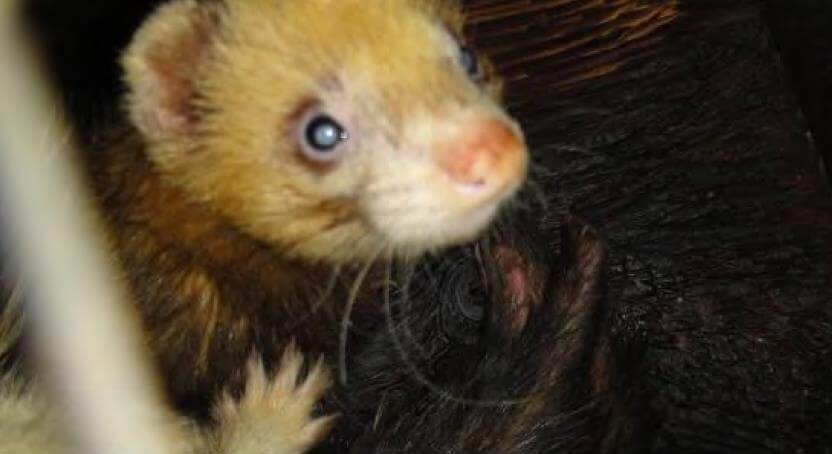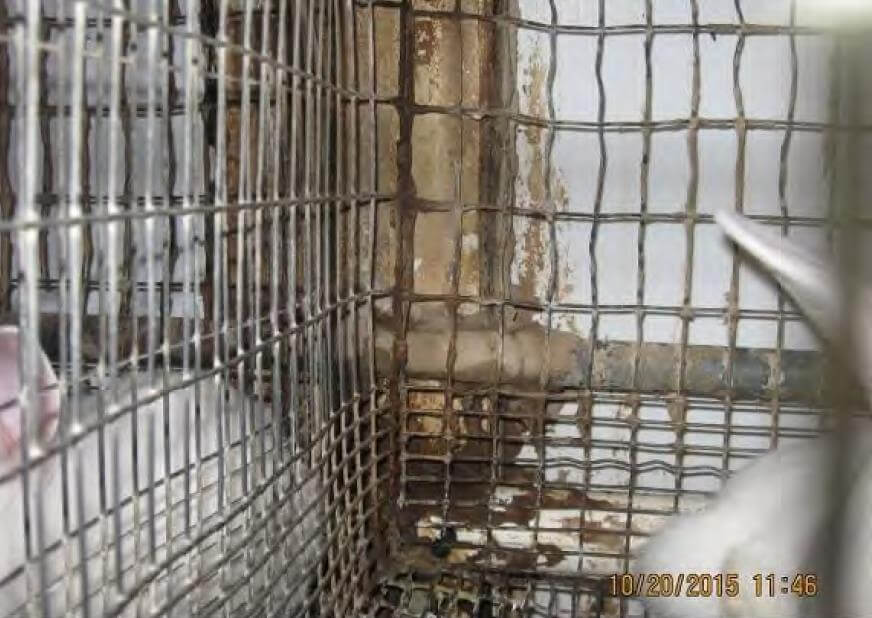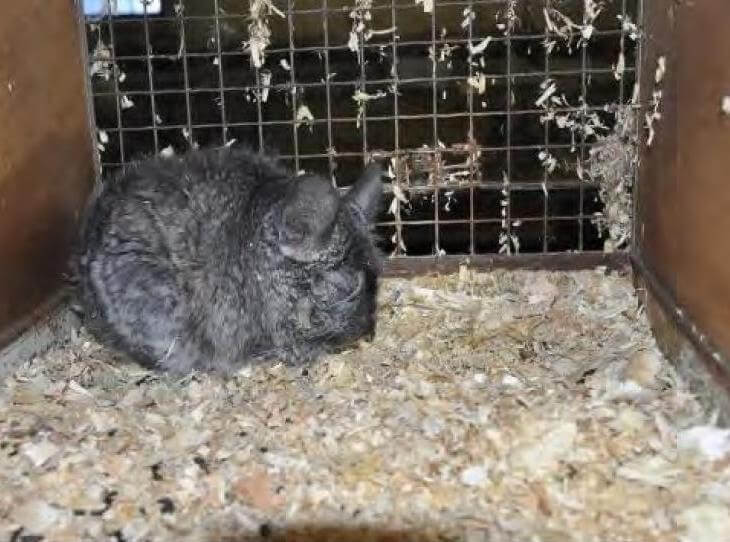PETA Exclusive: Exposing the Businesses That Sell Animals to Labs
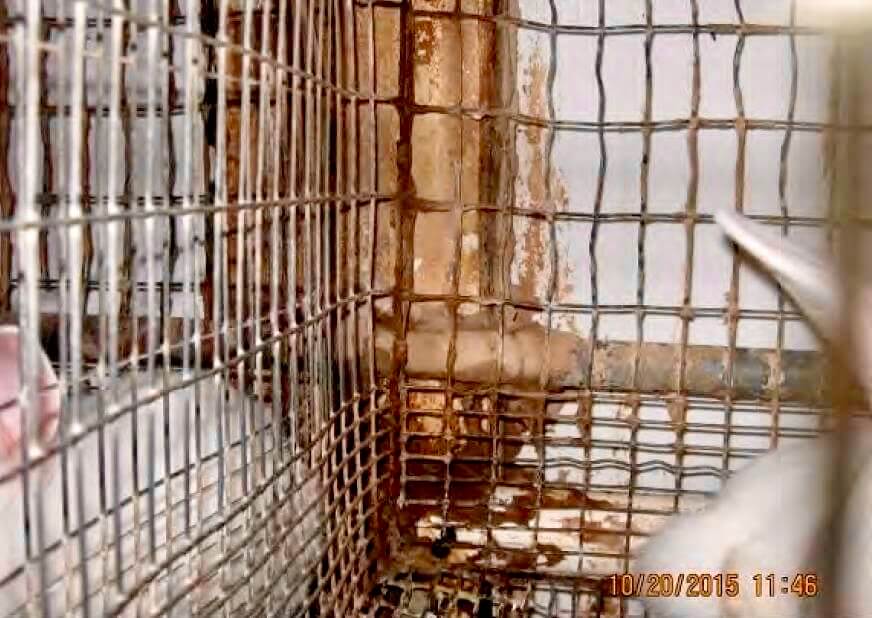
Update: Following years of egregious animal welfare violations, the notorious Moulton Chinchilla Ranch was stripped of its license to breed and sell animals to laboratories. In October 2021, a U.S. Department of Agriculture judge ruled that Moulton had willfully violated the federal Animal Welfare Act, citing over 100 violations since 2013, including failing to provide veterinary care to animals with ruptured eyes, infected wounds, and severe dental issues; housing chinchillas in filthy, hazardous conditions; and repeatedly obstructing inspections. The judge called Moulton’s history of violations “astounding” and fined the facility $18,000. PETA confirmed that all chinchillas have been removed from MCR’s wire cages and are receiving the veterinary care they were long denied.
They’re designed to be anonymous. Tucked away in unassuming facilities in quiet communities such as North Rose, New York; Ewing, Illinois; New Sharon, Iowa; and Oxford, Michigan, not even their names—Marshall Farms, Oak Hill Genetics, Ruby Fur Farm, and Oakwood Research Facility—betray the nature of their operations.
But these operations and numerous others around the country form a vast, largely unknown network of businesses that breed and supply dogs, chinchillas, foxes, ferrets, pigs, rabbits, and other animals for experimentation laboratories. They peddle in misery. Suffering is their currency.
PETA has obtained video footage and photographs taken by federal inspectors that for the first time show the unsanitary, often putrid and abhorrent conditions of these decrepit facilities that breed, warehouse, and sell sentient beings for profit. The footage—along with federal inspection reports—shows definitively that suffering for animals destined for experimentation begins well before they arrive at the laboratories.
Maggots crawl through food. Green algae grows in water bowls. Feces piles up. Wounds fester. To these businesses, the animals are not sentient beings who feel and fear just as you and I do. They’re widgets, items produced at minimal cost and sold for maximum profit. Pain, suffering, and distress do not figure into the bottom line. They simply do not matter.
“Man’s best friend” is bred into misery and sold to the highest bidder.
Dogs, primarily beagles, are also bred at the same types of facilities, enduring the same cruel treatment. Ridglan Farms in Blue Mounds, Wisconsin, and Whale Branch Animal Services Inc. in Seabrook, South Carolina, both breed beagles to sell to laboratories.
Marshall BioResources’ factory farms are feces-stained misery.
New York–based animal breeder Marshall BioResources is the largest factory farm in the U.S. for breeding beagles and ferrets. It also supplies cats, guinea pigs, mice, and pigs to laboratories and pet stores. In March 2024 alone, its facilities imprisoned more than 65,000 animals—enough to fill New York City’s Madison Square Garden to capacity three times over.
Whistleblower photographs shared by www.thecampbeagle.com with PETA show the dismal around-the-clock reality for the animals warehoused in Marshall’s shabby facilities. Beagles and their puppies are locked inside barren wire cages just inches above filthy, feces-covered concrete. Ferrets fare no better, trapped inside squalid wire enclosures that are caked in their own feces, which fill the air with the inescapable stench of ammonia.
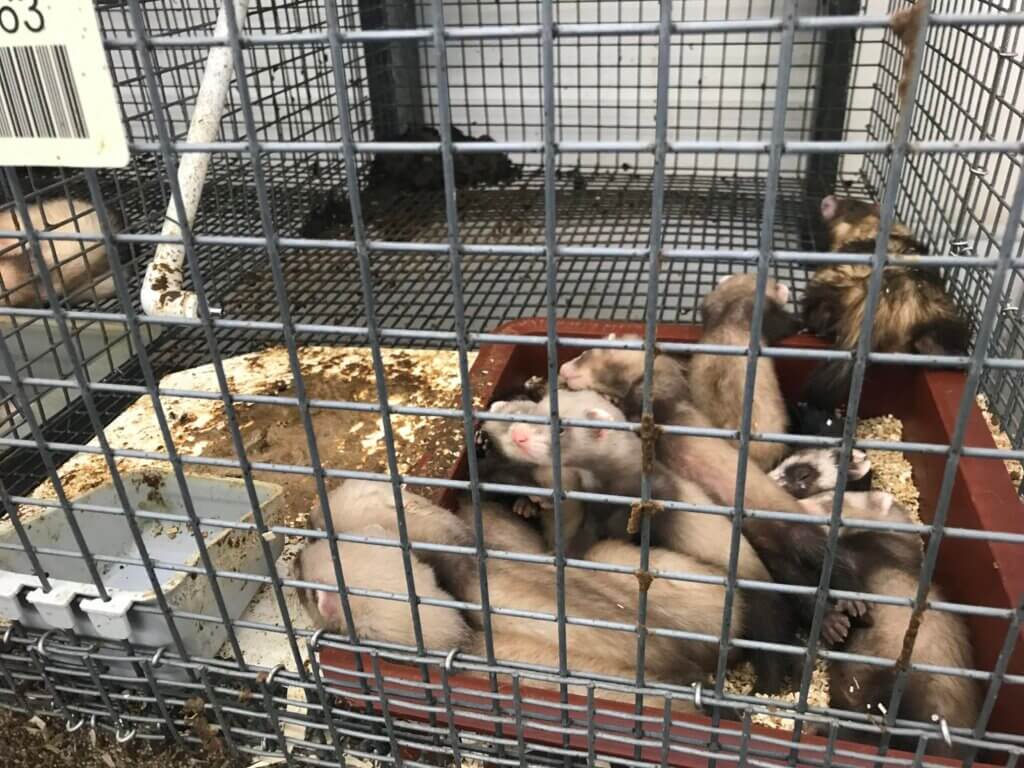
The U.S. Department of Agriculture (USDA) has repeatedly cited Marshall for violating the federal Animal Welfare Act (AWA) by keeping animals in decrepit cages in buildings teeming with mice and insects and failing to provide veterinary care. Its facilities have been plagued by massive disease outbreaks, including canine distemper and bacterial infections.
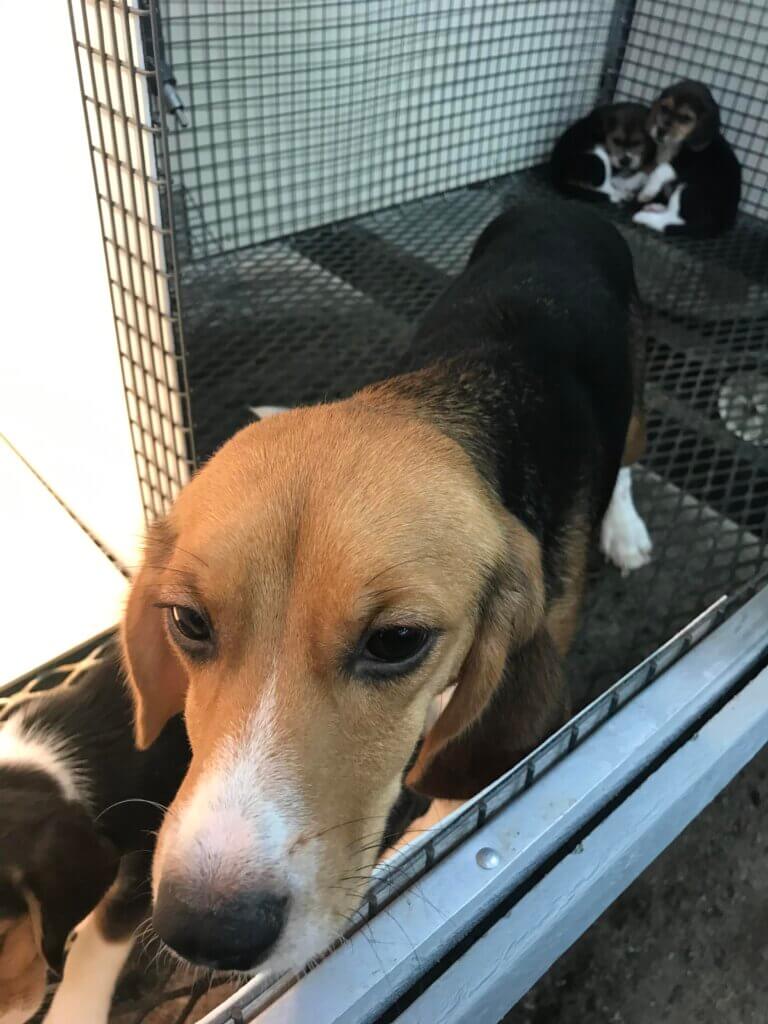
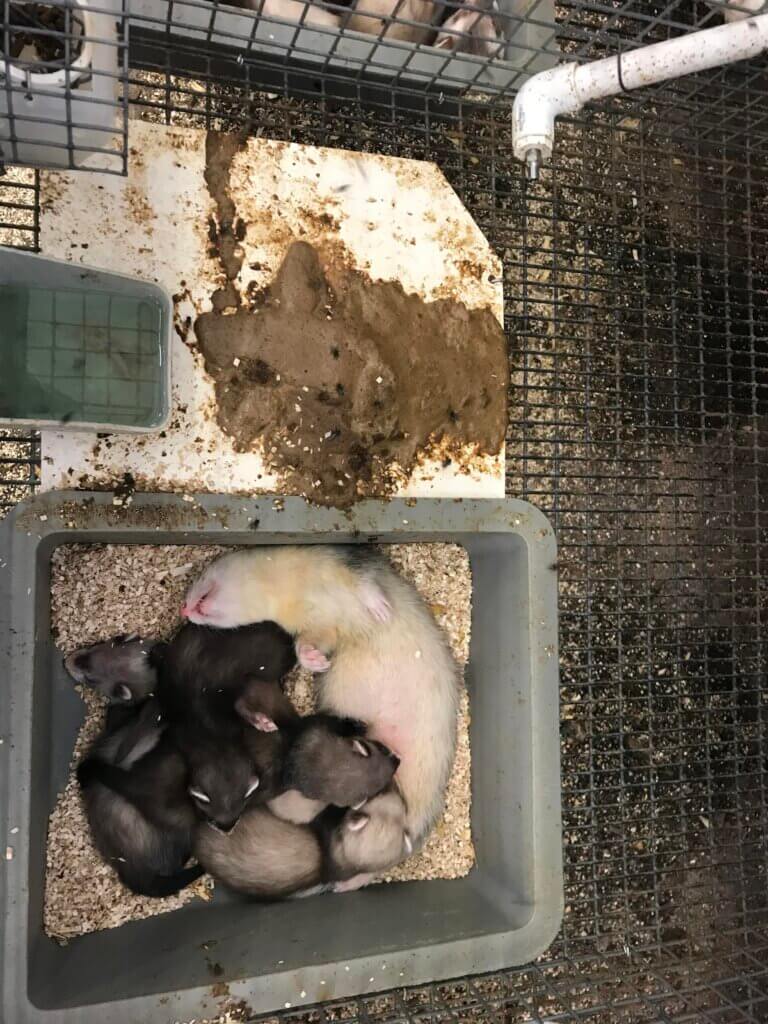
The whistleblower detailed the killing of any puppies who were born “non-standard”—including one with different colored eyes. Other alleged violations include the following:
- Cages for dogs and ferrets were properly cleaned just once every two weeks. The ferret cages constantly had mold in the feeders, and babies would become stuck in them.
- During the night, puppies commonly died and large quantities of blood were often found inside their cages. Many of the dogs also suffered from soreness and sustained injuries to their paws because they were forced to live on wire mesh flooring.
- The facility confined four to five beagles to a single cage, commonly resulting in fights among the stressed dogs.
- Some staff members roughly handled dogs, resulting in injuries to the jaws of some of them.
- Management at the facility, aware of when federal inspectors were coming, hid possibly noncompliant activity from them.
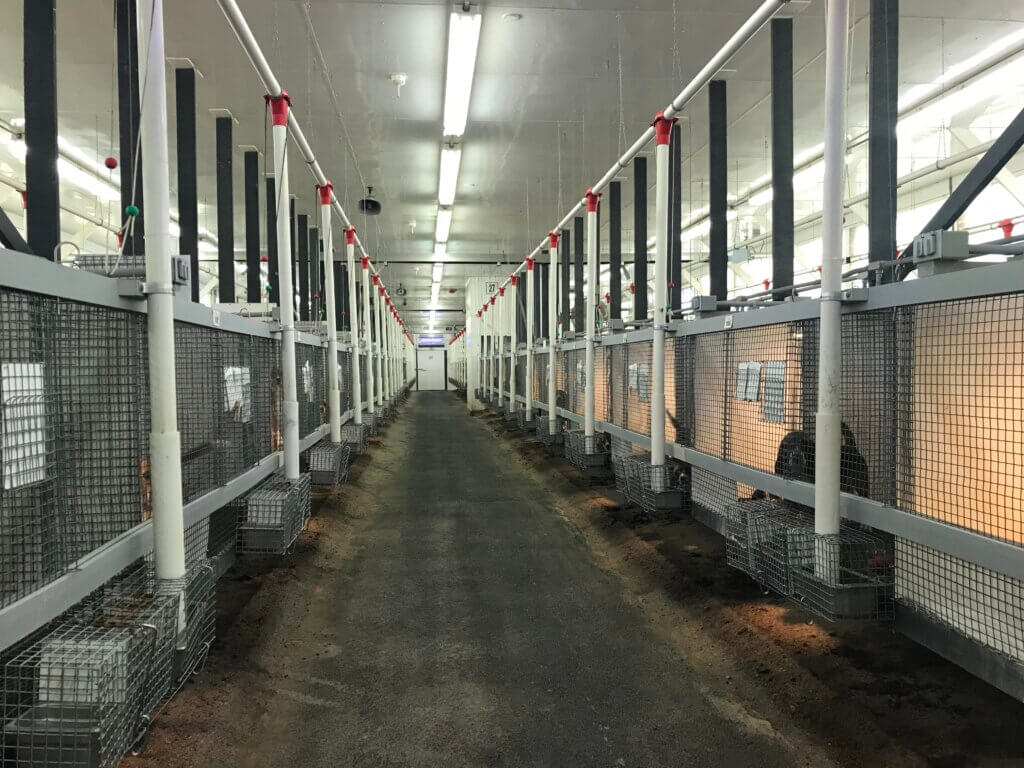
Federal law requires that dogs kept in cages have enough room for them to stand, sit, lie down, and turn around, yet Marshall fails to provide them with even this minimal space—and they have sustained injuries as a result.
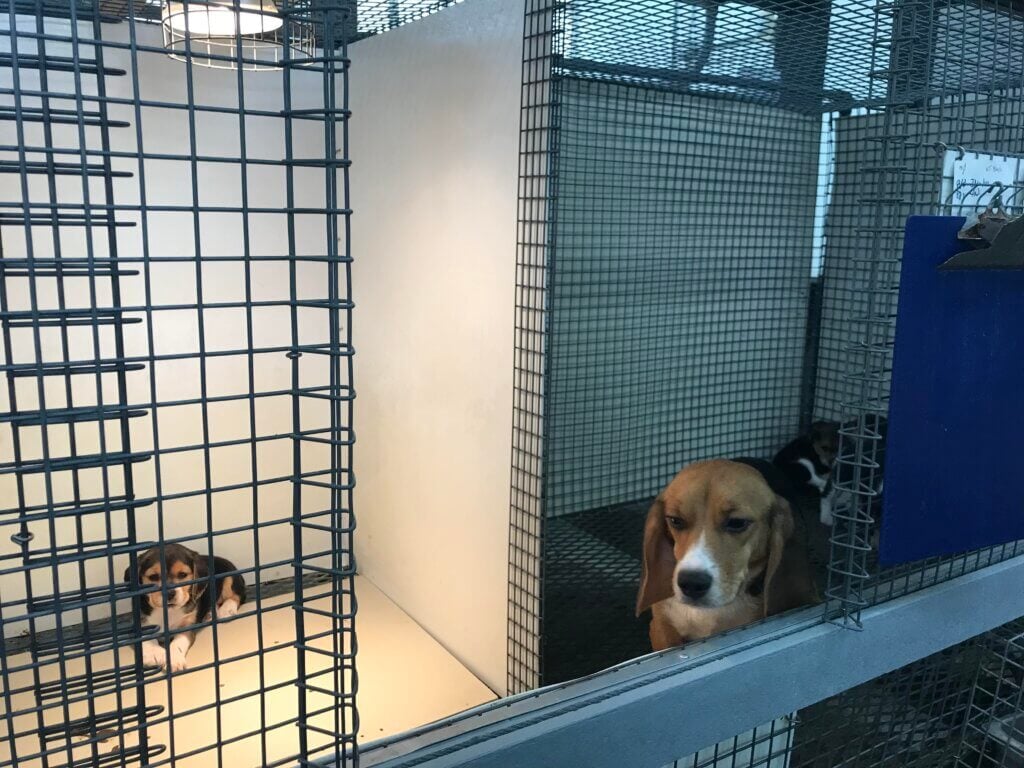
Marshall’s animals only know soiled concrete before they’re sold off to laboratories for use in violent experiments.
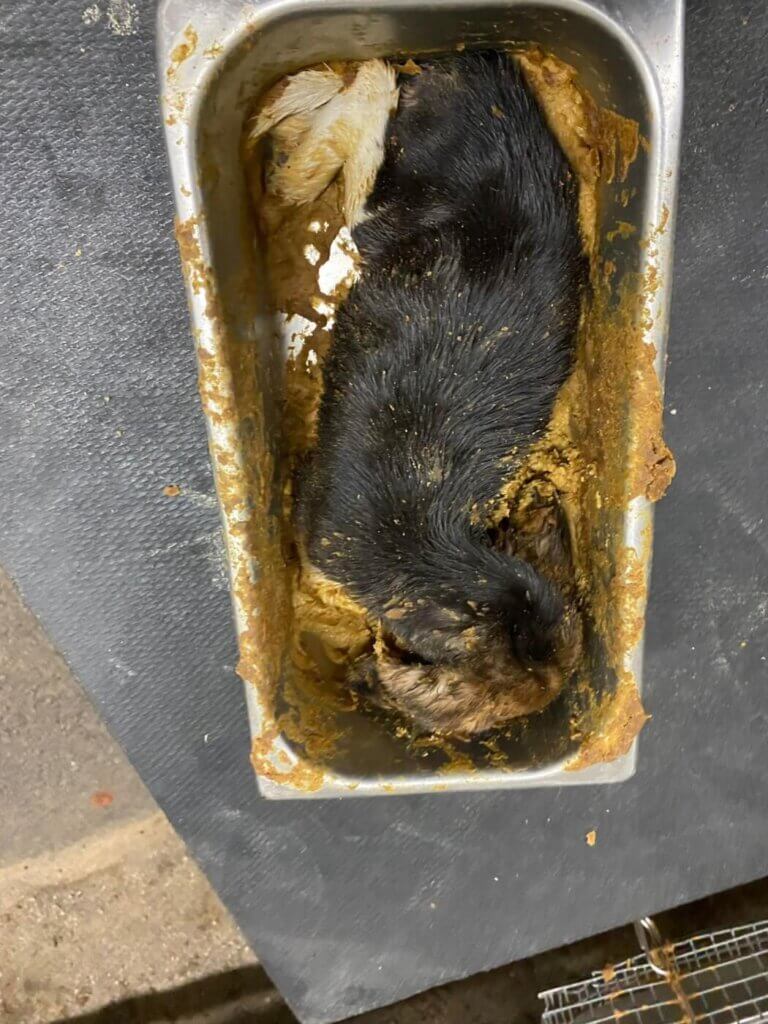
Ailing pigs wallow in an “excessive amount of excreta” with no medical treatment at Oak Hill Genetics.
With a population of just 300 people, Ewing is a diminutive speck of a town in southern Illinois. It’s also home to Oak Hill Genetics, which breeds pigs for laboratory experiments. Inspectors found lame pigs, untreated and wallowing in mountains of excrement, which were commonplace at the facility.
USDA inspectors found an “excessive amount of feces” under the dog enclosures at Oak Hill and “fecal material … smeared on the flooring of the enclosures.” Inspectors also noted that an “excessive amount of excreta was present in the back portion of the pig primary enclosures. The trough-like area at the back of the enclosures contained a black liquid mixture of excrement and water and was adjacent to the spigots used by the pigs to obtain water” [emphasis added].
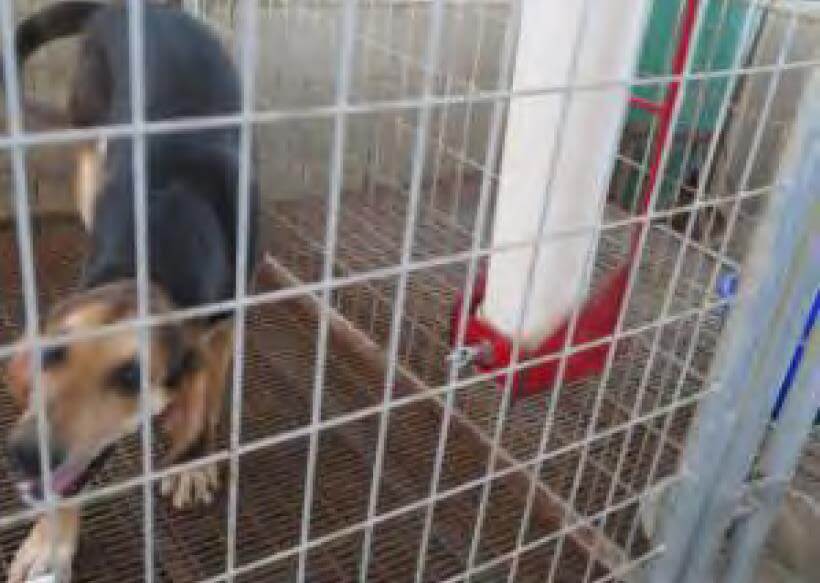
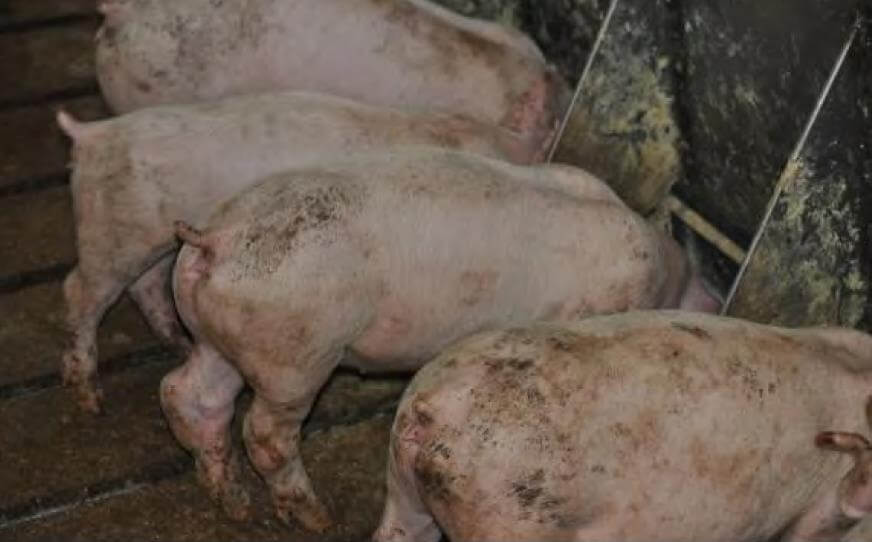
Sick and injured pigs suffered without veterinary care. Six 4- to 6-week-old pigs “had fluid filled swellings of their left ears.” One also had a swollen left rear hock and was limping. Another had multiple lumps or swelling on three of her legs. An inspector found that a male pig, about 25 weeks old, “had very large swellings on both sides of his neck and under the chin.”
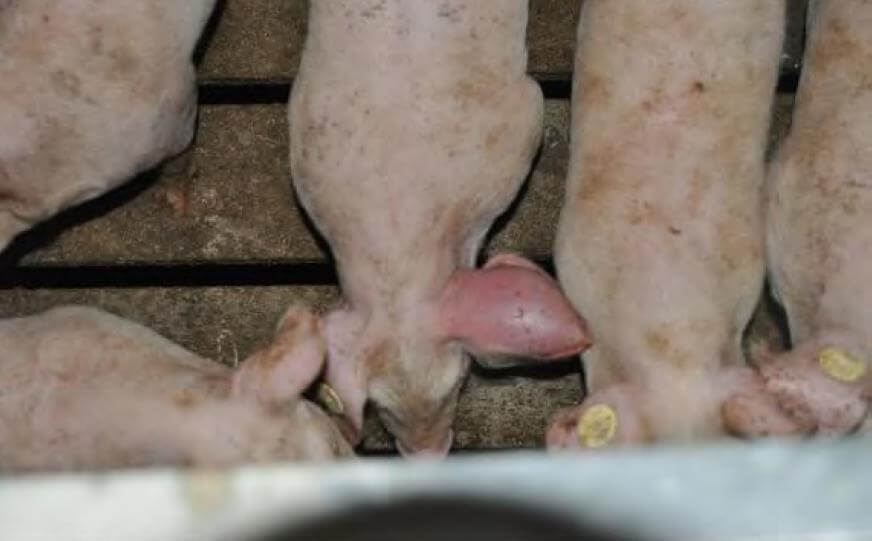
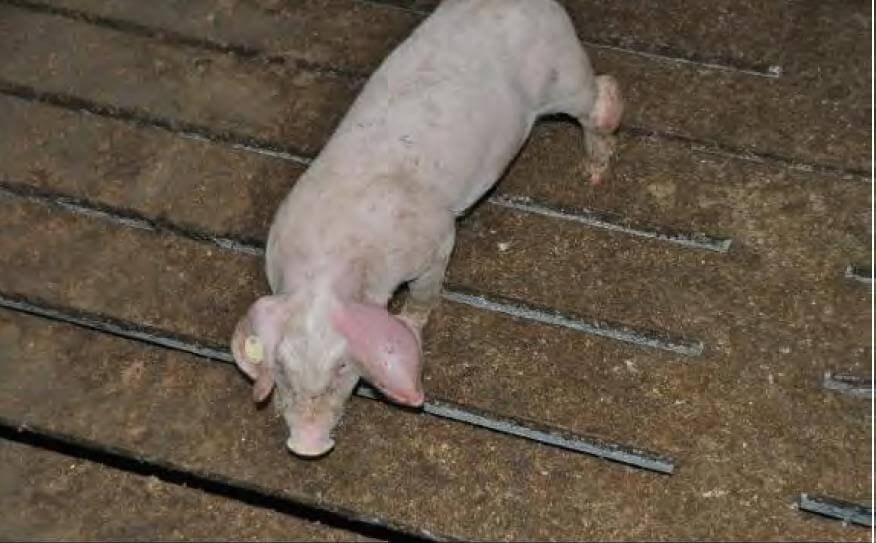

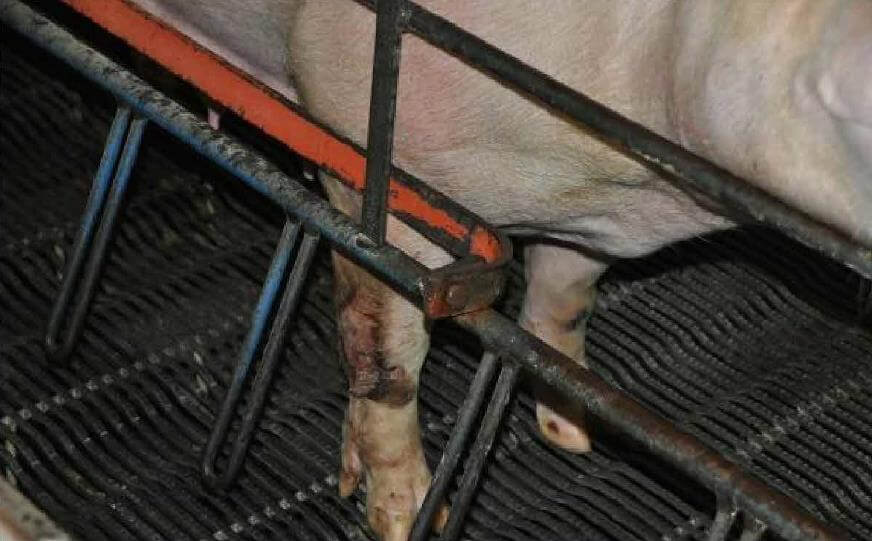
Oak Hill workers treated two pigs with an expired antibiotic—one of the two was lame but received no pain medication. Inspectors found a third recumbent and sick. “Several scratches were apparent on the hindquarters and a substantial amount of fecal material” coated the pig’s skin. Inspectors found all three pigs in concrete stalls with no bedding.
Ruby Fur Farm is a putrid, decaying sauna where animals endure 122-degree heat and drink out of algae-infested water containers.
New Sharon is a town of about 1,200 people halfway between Iowa City and Des Moines in south-central Iowa and home to Ruby Fur Farm, which breeds and sells skunks, raccoons, and ferrets to laboratories or the pet trade.
Federal inspectors documented an accumulation of standing water mixed with animal waste and insects under a full third of the raccoon cages. They also found green algae and insects in the drinking water for foxes and raccoons. Dilapidated cages had broken wires.
During multiple inspections over the summer months, federal inspectors documented that raccoons were “in serious heat distress,” panting and open mouth breathing while “lying on their sides, backs, and abdomens with their legs splayed.” On some days, the heat index soared as high as 122 degrees.
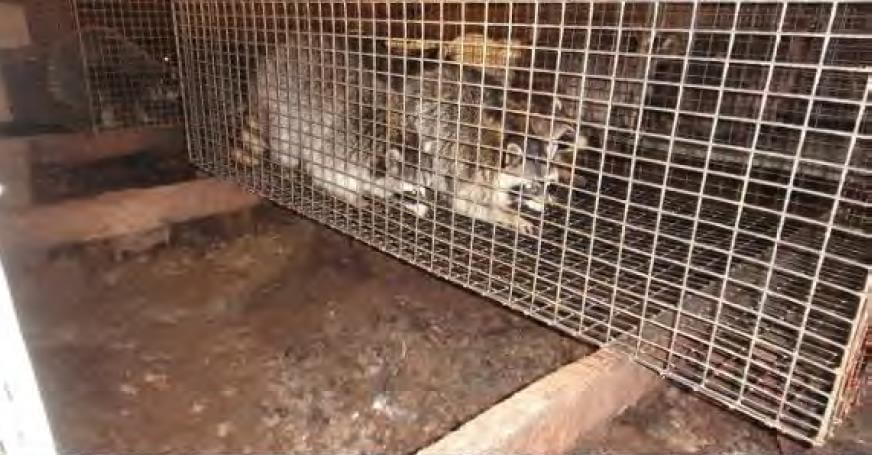
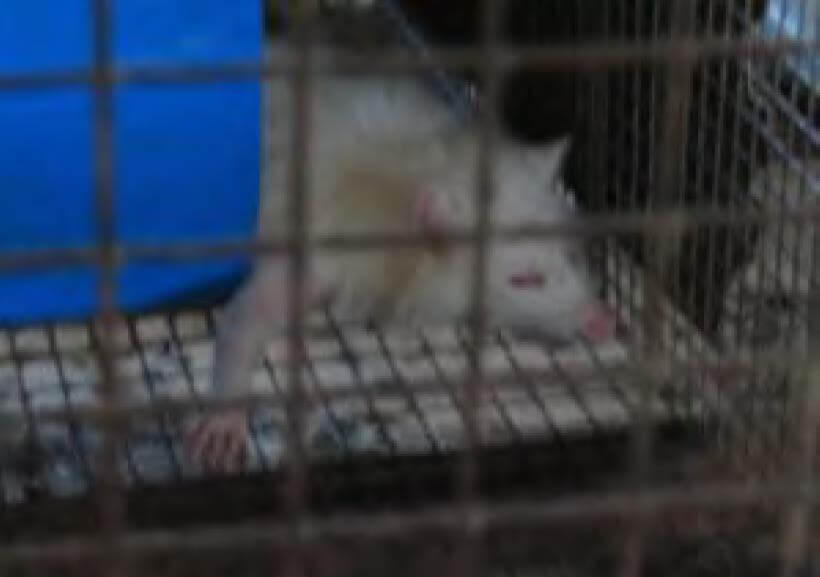
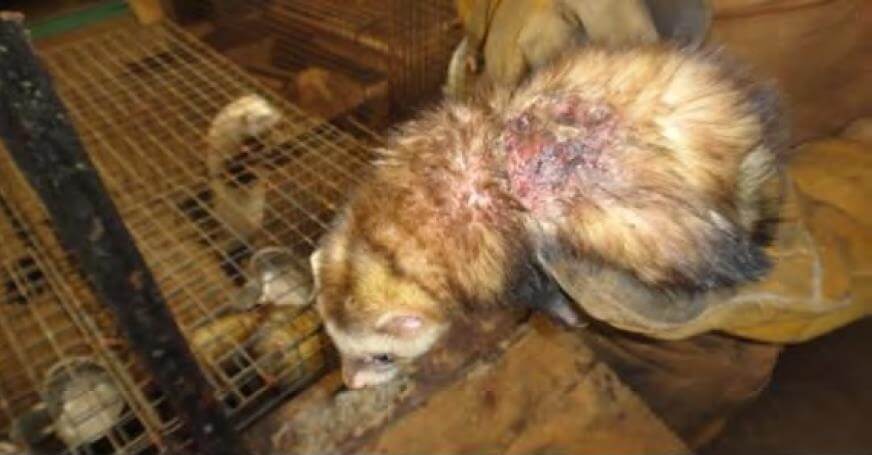
Federal inspectors found that Ruby Fur failed to provide a female ferret, who had numerous engorged ticks on her head and body, with veterinary care. A raccoon had “white-yellowish colored discharge” covering at “east half of the surface of [her] left eye.” Several skunks had extensive hair loss over their bodies, and one skunk with extreme hair loss circled her cage, inspectors found.
Rabbits held in decrepit cages are routinely neglected.
Oxford, a village of about 3,400 people in northern Oakland County, Michigan, is home to more rabbits than humans. Oakwood Research Facility keeps about 4,000 white, domestic rabbits in rusted, ramshackle cages, coated with feces and urine.
Inspectors found that many of the wire cages were heavily rusted and that many of their floors sagged from years of use. Some had just given way. Two rabbits escaped from their cages and were running loose on the floor. They were killed.
Urine and feces drip down the walls of the facility. Food containers in lower cages catch the excrement and urine from those above.
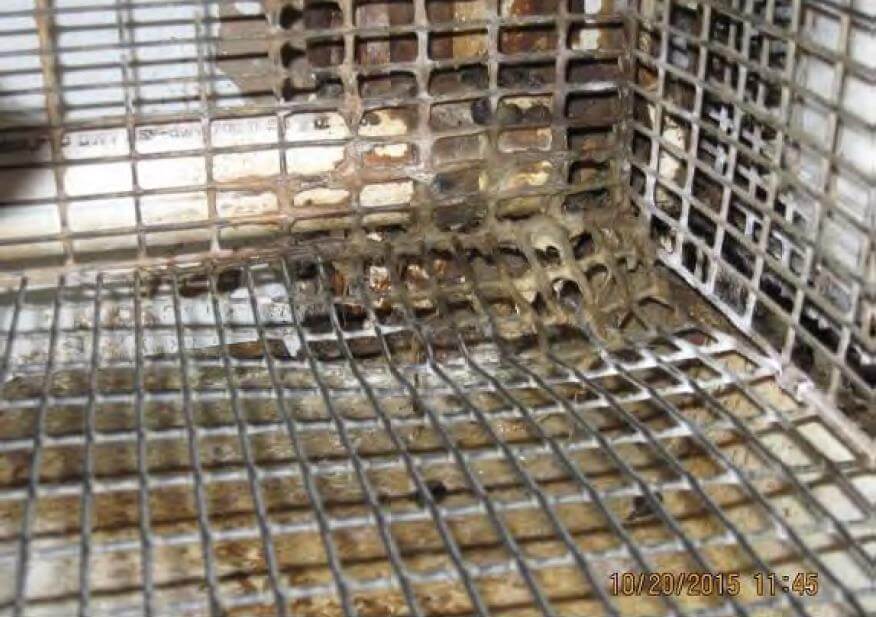
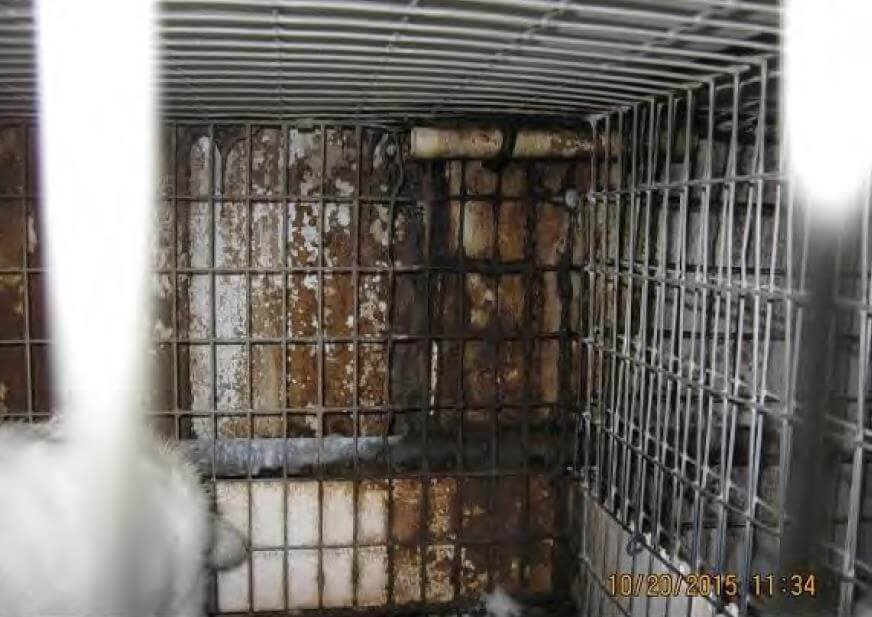
Veterinary care is sparse. An inspector saw several rabbits with inflamed and reddened skin, and some had fight wounds. During one inspection, a 2-month-old nonresponsive rabbit had their nose pressed against the cage. The rabbit was cold, and their hind legs were covered with diarrhea. The rabbit was killed. During that same inspection, at least 25 rabbits were hungry and unfed at 11:30 a.m., even though employees had arrived at 7 a.m.
Moulton Chinchilla Ranch, a foul-smelling misery factory, willfully violated animal protection laws yet continued to operate for years.
Moulton Chinchilla Ranch was located in Chatfield, Minnesota, a quiet town with a population of fewer than 3,000, located outside Rochester.
Moulton was a hellhole so wretched that in November 2018, the USDA took the rare step of filing a formal complaint against the company for its serious and chronic violations of the AWA.
Federal inspectors found chinchillas with open, untreated wounds as well as collars that were embedded into their necks. When they were removed, inspectors said that “the skin was eroded, there was matted hair and open lesions” and “a putrid odor was noticeable” [emphasis added].
One baby chinchilla found outside his enclosure was placed with a foster mother. It was later noticed that the animal had “a deep fresh wound on [his] back left leg … [and] some toes just hanging on” [emphasis added].
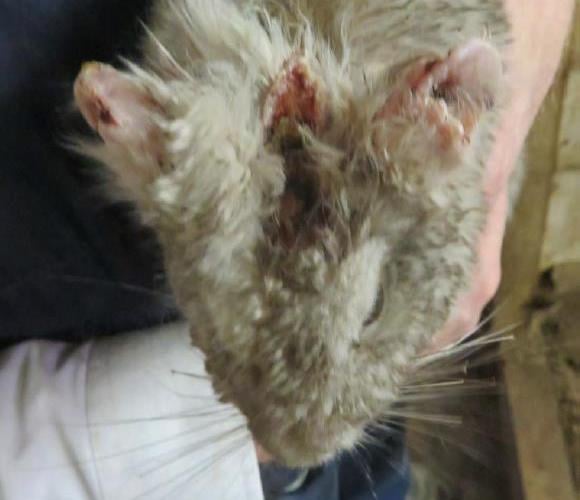
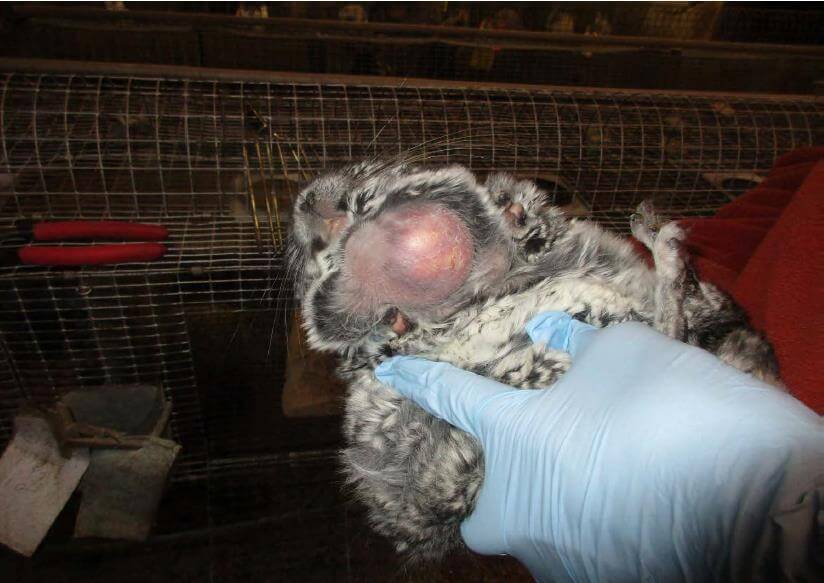
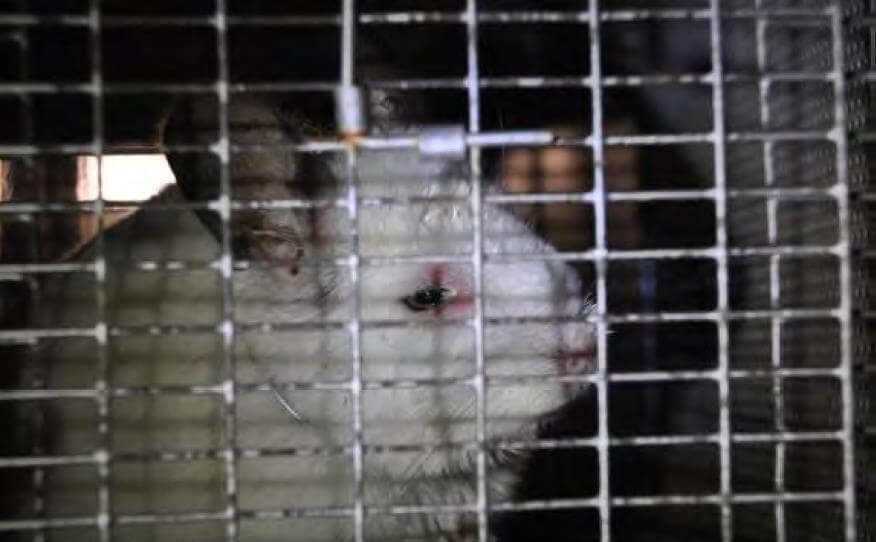

Also, multiple inspections spanning several years showed that enclosures had holes and chinchillas could escape, fall through, or become injured. Several feeders were rusted. Inspectors also observed accumulations of feces and foul odors.
Following a PETA undercover investigation in 2021, a USDA judge stripped the facility of its AWA license, and in February 2022, PETA confirmed that the facility no longer housed any chinchillas.
You can help stop this!
Please add your voice to ours by calling on the USDA to revoke the licenses of these and other facilities that have long histories of failing to comply with the minimum provisions of the AWA.


